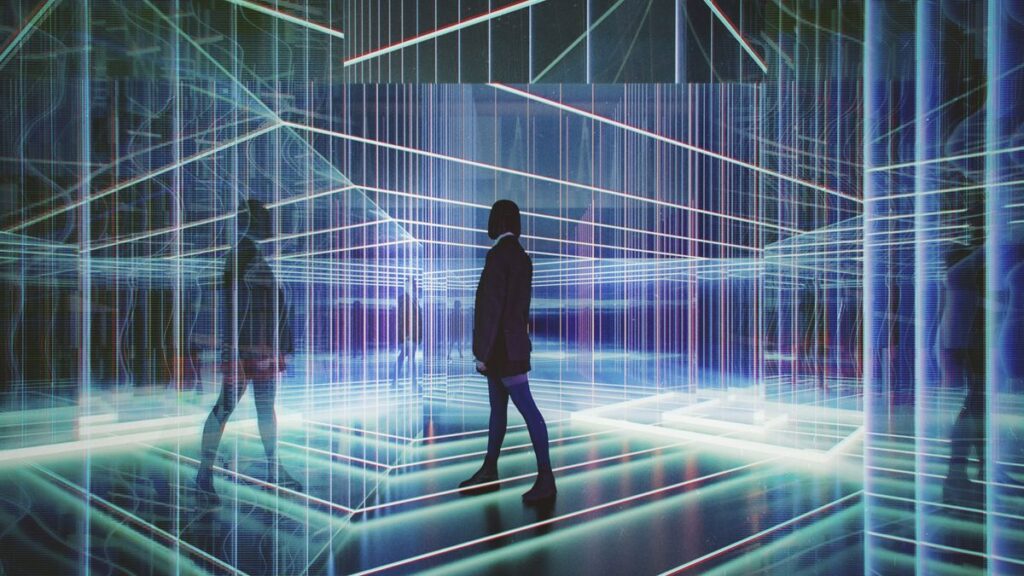AI and the Quest for Identity: Navigating a New Normal
The rapid rise of artificial intelligence (AI) raises important questions, not only about the technology itself but also about the moral and philosophical implications it carries. This evolution reshapes many aspects of our lives, including our health, work, politics, and, perhaps most importantly, our identities. What does it mean to be human in this digital age?
A New Perspective on Self-Identity
A thought-provoking essay in the upcoming book AI Morality, edited by British philosopher David Edmonds, delves into these issues. Muriel Leuenberger, a postdoctoral researcher at the University of Zurich, has penned a compelling piece entitled "Should You Let AI Tell You Who You Are and What You Should Do?" In her study, she argues that the algorithms powering today’s digital platforms—like social media and dating apps—may possess insights about us that we ourselves may not recognize. The central question is whether we can trust AI to guide our decision-making and what the implications are for our personal agency.
Think about it: your smartphone essentially tracks every aspect of your life. From your social interactions and favorite entertainment choices to your physical movements and purchasing habits, this data is being utilized to target you for products, services, and even political advertisements. Companies like Google and Facebook have the potential to predict our preferences and state of mind, becoming more familiar with our personalities than we are.
With the ongoing evolution of AI, it’s conceivable that these systems could construct personal profiles more accurately reflecting our values and character than we might realize about ourselves. Notable thinkers like Yuval Harari suggest that someday it might seem natural to rely on AI for major life decisions—from choosing friends to career paths. Yet, while this may sound convenient, Leuenberger raises two critical points that remind us of the potential pitfalls.
Can We Trust AI?
Trust is at the forefront of Leuenberger’s argument. When considering whether to follow AI recommendations, trust becomes a complex issue. It’s easy to reflect on the reliability of a friend’s advice—but AI lacks transparency and is often a "black box." With systems notoriously rife with biases, it’s crucial to be skeptical. How many of us know how these algorithms work or what information they utilize? Often, the developers’ intentions, system competency, and the AI’s ability to understand our unique circumstances remain obscured.
The Art of Self-Creation
Beyond trust, there’s a bigger question at play: Who are we without the ability to define ourselves? Relying on AI might suggest that our identity is merely something to be discovered or quantified, sidelining the essence of self-creation. Philosophers such as Jean-Paul Sartre argue that existence precedes essence; we actively shape our identities, bringing them to life through our choices. This ongoing pursuit makes us unique.
A simple piece of advice from an AI might appear harmless. Increasingly, AI suggests paths for our lives, but this could lead to a detrimental dependency. When you allow AI to dictate volunteer opportunities, career changes, or even what music you enjoy, you risk surrendering your power over who you are. Sure, it’s convenient to ask an AI for music recommendations instead of sifting through playlists, but in doing so, you might lose that essential skill of discovery and personal growth.
Choosing to Explore
Relying heavily on AI can lead to a rigid sense of self. Studies show that constant recommendation systems often reinforce our current likes, limiting our engagements and ultimately stunting personal growth. In contrast, pursuing new and unfamiliar avenues—whether picking a book outside your usual genre or exploring a new city—encourages evolution.
AI can certainly be a helpful mirror, providing insights and suggesting actions. However, it is our responsibility to interpret these reflections and make choices that align with our own values and beliefs. By stepping away from AI-driven decisions occasionally, we can maintain a sense of agency.
Conclusion: The Path Forward
So where does this leave us? Yes, the allure of letting an algorithm reveal our preferences and decisions is strong, particularly when life feels overwhelming. But we must weigh that against the necessity of self-definition and the moral responsibility that comes with it. Stripping away the inquiry and reflection required in the process of self-creation can stifle our growth. It’s vital to remain an active participant in our own stories.
The AI Buzz Hub team is excited to see where these breakthroughs take us. Want to stay in the loop on all things AI? Subscribe to our newsletter or share this article with your fellow enthusiasts.




